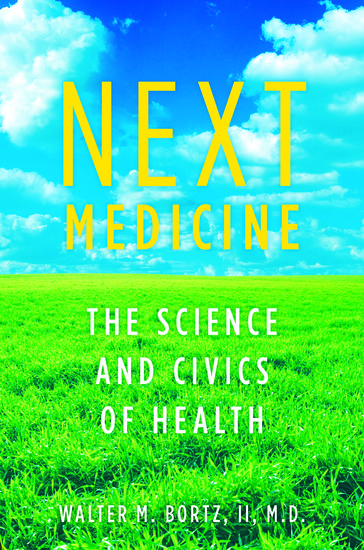By Walter M. Bortz, II M.D.
One hundred years ago the fledgling American Medical Association (AMA) and the Carnegie Foundation joined in an effort to redress the wretched state of medicine in America. Its scientific value was meager, but more important was its status as a huckster enterprise. The AMA and Carnegie sought out Abraham Flexner, a young John Hopkins graduate educator, to lead the examination. The resulting Flexner Report is widely regarded as the single most important document in the history of current medicine. Its scathing content targeted practice, training, and process. Ninety-one of the diploma mills were driven out of existence. A new model based on the Johns Hopkins example was made the prototype.
A century after this reformulation, an immense gain in medical science is in hand. Yet the medical profession again receives failing grades. It is bankrupting, unfair, dangerous, corrupt, inefficient, inconsistent, and irrelevant; it confounds our leaders. We must call for a new Flexner Report.
Thomas Kuhn, the historian from the University of Chicago, observes in The Structure of Scientific Revolutions that in order to abet a true revolution, two prerequisites must be obtained. First, there must be a general agreement among the aggrieved parties that a change is demanded. (Appeasement is futile.) Second, there must be a new paradigm available of sufficient dimension and power to replace the failing model.
For medicine, there is a growing agreement that revolution is required. Doctors and patients, labor and industry, Democrats and Republicans, the meek and the mighty, are a chorus of distress. On a recent Stanford visit, Peter Orzag said that in order for America to get on with the rest of its business, it must have a major resolution of the health care mess. The first revolutionary requirement is fulfilled.

But even more importantly, there is for the first time in history, a sturdy replacement paradigm. Our system must be framed around health, rather than disease, active rather than reactive. We know with precise metrics the determinants of health, just as we know the much more extensively studied determinants of disease. The exposition of health is immensely empowering because it validates the supremacy of prevention over repair as medicine’s MO. Heart disease, diabetes, cancer, frailty, and AIDS are rarely curable, but are securely preventable, which is vastly cheaper, fairer, and more relevant. Kuhn’s required replacement paradigm becomes “Health instead of disease, prevention instead of repair — Next Medicine.”
Current medicine fails its mission — a square peg for a round hole. Its current tools of surgery, technology, and pharmacy make little dent on the overwhelming confrontations of diabetes, obesity, and aging. It is irrelevant to the societal need. The CDC posits that ours is the first generation in the history of our republic when the children will live less long than the parents.
Health illiteracy is our biggest problem and the current model of repair cannot address this because it pays. Fully 60% of our annual medical expense of $2.7 trillion is attributable to behaviors that are preventable — nurture, not nature. Capitalism is not the problem, but its product is illness instead of wellness. The service fee model embraces sickness.Perverse incentives now prevail.
We must incent health instead of disease. We must embrace prevention instead of repair. Health must pay. Medicine’s primary job — read Asclepius and Hygeia — is health. Doctor, from docere, to teach. Learn it. Teach it. Live it. Save trillions.
Walter Bortz II, M.D., is Clinical Associate Professor of Medicine at the Stanford School of Medicine. He is the author of Next Medicine: The Science and Civics of Health, We Live Too Short and Die Too Long: How to Achieve and Enjoy Your Natural 100-Year-Plus Life Span, and Living Longer for Dummies. An authority on aging, he is also a marathon runner.
Subscribe to the OUPblog via email or RSS.
Subscribe to only health and medicine articles on the OUPblog via email or RSS.
View more about this book on the ![]()
![]()


Recent Comments
There are currently no comments.